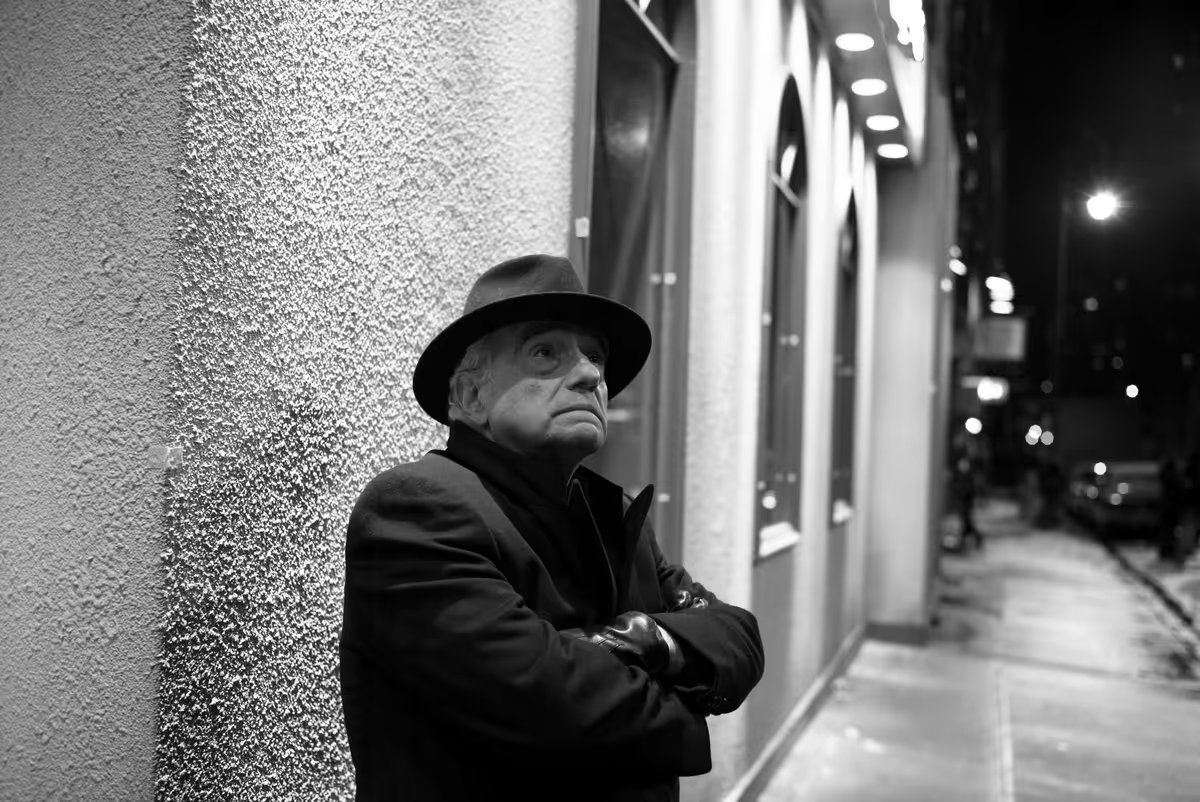14 Memorable Quotes From ‘Mr. Scorsese’
Rebecca Miller’s five-part documentary about Martin Scorsese spans the director’s life and career via archival footage and candid conversation.

Though originally envisioned as a feature-length film, Mr. Scorsese barely fits inside the five-episode form into which director Rebecca Miller has shaped it. Premiering this Friday on Apple TV+, the series offers a cradle-to-Killers of the Flower Moon look at the filmmaker’s life, filled with vintage clips and interviews conducted for the film with Scorsese’s friends, collaborators, and Scorsese himself. It’s a long, winding story that could easily be stretched twice the length of Miller’s series and still feel far from exhaustive, as good as the final results are. Longtime admirers will likely find some—though certainly not all—of the stories familiar, but even when covering familiar ground, Miller’s lively approach, ability to connect the dots between Scorsese’s life and work, and gift for drawing memorable quotes from her interview subjects keeps Mr. Scorsese compelling. Here’s a sampling with some thoughts on what they mean.
1. Spike Lee: “Thank God for asthma!”
Late in Mr. Scorsese, the director pauses from his trademark rapid-fire delivery to take a draw on his inhaler. The moment serves as a kind of callback to a key element of the Scorsese origin story. Had he not been stricken with asthma at the age of three, a condition that sometimes required him to spend hours in bed beneath a steam-filled tent, Scorsese’s life might have taken a different path. While other boys his age played in the streets of New York’s Little Italy, Scorsese looked down from the window above, the inspiration, he believes, for the many high-angle shots found in his movies. Scorsese’s lungs also found relief in the city’s air-conditioned movie theaters because, as his Goodfellas and Casino co-writer Nicholas Pileggi puts it, “That’s where he could breathe.” Would a healthier Scorsese have followed the same path? Spike Lee clearly doesn’t believe it would and he’s surely not alone for feeling grateful that Scorsese developed the condition. (Of course, none of us had to endure the suffering to get the art.)
2. Martin Scorsese: “We were ostracized from Corona.”
Scorsese’s parents were born on opposite sides of Elizabeth Street, in the same neighborhood where Scorsese did most of his growing up. But the family briefly moved to a small house, complete with a backyard, in the Corona neighborhood of Queens, a place Scorsese likens to “paradise.” They were compelled to return to Little Italy following a dispute between Scorsese’s father Charles and a landlord. Scorsese only vaguely recalls the details of the dispute but vividly remembers that it climaxed in a physical confrontation in the street that sent the family packing in shame. Scorsese likens the moment to the end of Bicycle Thieves, and recalling it makes clear that the pain hasn’t fully dissipated decades later.
3. Martin Scorsese: “The influence was coming in from everywhere. You broke everything open and you could combine it all and it’s a movie.”
Scorsese describes the world of his childhood in terms that suggest it had barely moved on from the turn-of-the-century Little Italy seen in The Godfather Part II. The years after World War II would sweep that away. “I began to realize that something was changing,” he tells Miller. “It was early rock and roll and the old world was dying out.” Scorsese first attempted escape via the church, thanks to the influence of Father Francis Principe, a young, progressive priest who wasn’t afraid to use his fists, then via New York University’s film program, where a professor named Haig Manoogian became a kind of mentor. (Scorsese: “My father to the priest to him.”) Five blocks but also half a world away, NYU allowed him to soak up influences from beatnik- then hippie-filled coffee shops to stand-up comedy to the various new waves changing the face of cinema. The headiness and diverse influences of the time can be seen in Scorsese’s work, from his student efforts to the present.

4. John Cassavetes (as remembered by Martin Scorsese): “You just spent a year of your life making a piece of shit.”
After making his feature debut with Who’s That Knocking at My Door and working on Woodstock (a film for which he expected to receive a co-directing credit), Scorsese left New York for Los Angeles. There he picked up a friendship with fellow New Yorker Brian De Palma and befriended other up-and-comers like Coppola, Steven Spielberg, John Milius, George Lucas, and Paul Schrader. Scorsese also briefly joined Roger Corman’s stable of directors to helm the Bonnie and Clyde-inspired crime film Boxcar Bertha, the subject of a withering assessment from John Cassavetes, whom Scorsese greatly admired. (Per Scorsese, Cassavetes wasn’t the only one who’d felt like he’d sold out his art to make a commercial film beneath his talents. “My friends didn’t like it,” he recalled. “It’s as if I had caught a disease or something. They looked at it and moved away from me.”)
Taking Cassavetes’ words as an attempt to guide rather than insult, Scorsese returned to New York and made Mean Streets. In the process, he put aside plans to helm the Jim Brown vehicle I Escaped from Devil’s Island, a job then taken by William Witney, a veteran western director and Quentin Tarantino favorite. It’s fascinating to consider what might have been. Plenty of great directors emerged from Corman’s world. Why didn’t it work for Scorsese? In some respects, it set a pattern that’s recurred throughout the director’s career, one in which he’s seemingly been incapable of making a purely one-for-them commercial film without turning it into a personal project. Though not a bad film, Boxcar Bertha is the closest Scorsese came to directorial anonymity. Where, say, Jonathan Demme could put his stamp on Caged Heat insofar as the material would allow it and use it as a stepping stone toward other sorts of projects, Scorsese was an all-or-nothing filmmaker from the start.
5. Martin Scorsese: “Do I consider presenting violence on the screen to a world audience as something that is commendable? If it’s truthful violence, yeah, I do.”
This post is for paying members only
Sign up now to read the post and get access to the full library of posts for subscribers only.
✦ Sign up